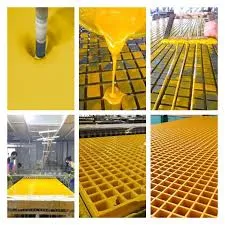
-
 Afrikaans
Afrikaans -
 Albanian
Albanian -
 Amharic
Amharic -
 Arabic
Arabic -
 Armenian
Armenian -
 Azerbaijani
Azerbaijani -
 Basque
Basque -
 Belarusian
Belarusian -
 Bengali
Bengali -
 Bosnian
Bosnian -
 Bulgarian
Bulgarian -
 Catalan
Catalan -
 Cebuano
Cebuano -
 China
China -
 China (Taiwan)
China (Taiwan) -
 Corsican
Corsican -
 Croatian
Croatian -
 Czech
Czech -
 Danish
Danish -
 Dutch
Dutch -
 English
English -
 Esperanto
Esperanto -
 Estonian
Estonian -
 Finnish
Finnish -
 French
French -
 Frisian
Frisian -
 Galician
Galician -
 Georgian
Georgian -
 German
German -
 Greek
Greek -
 Gujarati
Gujarati -
 Haitian Creole
Haitian Creole -
 hausa
hausa -
 hawaiian
hawaiian -
 Hebrew
Hebrew -
 Hindi
Hindi -
 Miao
Miao -
 Hungarian
Hungarian -
 Icelandic
Icelandic -
 igbo
igbo -
 Indonesian
Indonesian -
 irish
irish -
 Italian
Italian -
 Japanese
Japanese -
 Javanese
Javanese -
 Kannada
Kannada -
 kazakh
kazakh -
 Khmer
Khmer -
 Rwandese
Rwandese -
 Korean
Korean -
 Kurdish
Kurdish -
 Kyrgyz
Kyrgyz -
 Lao
Lao -
 Latin
Latin -
 Latvian
Latvian -
 Lithuanian
Lithuanian -
 Luxembourgish
Luxembourgish -
 Macedonian
Macedonian -
 Malgashi
Malgashi -
 Malay
Malay -
 Malayalam
Malayalam -
 Maltese
Maltese -
 Maori
Maori -
 Marathi
Marathi -
 Mongolian
Mongolian -
 Myanmar
Myanmar -
 Nepali
Nepali -
 Norwegian
Norwegian -
 Norwegian
Norwegian -
 Occitan
Occitan -
 Pashto
Pashto -
 Persian
Persian -
 Polish
Polish -
 Portuguese
Portuguese -
 Punjabi
Punjabi -
 Romanian
Romanian -
 Russian
Russian -
 Samoan
Samoan -
 Scottish Gaelic
Scottish Gaelic -
 Serbian
Serbian -
 Sesotho
Sesotho -
 Shona
Shona -
 Sindhi
Sindhi -
 Sinhala
Sinhala -
 Slovak
Slovak -
 Slovenian
Slovenian -
 Somali
Somali -
 Spanish
Spanish -
 Sundanese
Sundanese -
 Swahili
Swahili -
 Swedish
Swedish -
 Tagalog
Tagalog -
 Tajik
Tajik -
 Tamil
Tamil -
 Tatar
Tatar -
 Telugu
Telugu -
 Thai
Thai -
 Turkish
Turkish -
 Turkmen
Turkmen -
 Ukrainian
Ukrainian -
 Urdu
Urdu -
 Uighur
Uighur -
 Uzbek
Uzbek -
 Vietnamese
Vietnamese -
 Welsh
Welsh -
 Bantu
Bantu -
 Yiddish
Yiddish -
 Yoruba
Yoruba -
 Zulu
Zulu
frp walkway
Exploring the Beauty and Functionality of FRP Walkways
In today’s world, where sustainability and durability are paramount in construction and design, Fiber Reinforced Polymer (FRP) walkways have emerged as a popular choice for both commercial and residential applications. This innovative material combines the best properties of plastics and composites, making it an ideal solution for various outdoor and indoor settings. With a focus on strength, weight, and resistance to environmental factors, FRP walkways are gaining traction in a myriad of industries.
Exploring the Beauty and Functionality of FRP Walkways
Another significant advantage of FRP walkways is their resistance to corrosion and environmental degradation. Traditional materials, especially metals, are prone to rust and decay when exposed to harsh weather conditions. In contrast, FRP is not affected by moisture, salts, or chemicals, making it perfect for marine applications or areas with high humidity. As a result, FRP walkways can last for decades with minimal maintenance, which translates into lower long-term costs for property owners.
frp walkway

Safety is another critical aspect where FRP walkways excel. The surfaces of FRP can be designed to provide excellent skid resistance, which is crucial for preventing slips and falls, especially in wet conditions. This feature makes FRP walkways particularly suitable for public spaces, pool areas, and workplaces where safety regulations are stringent. Moreover, FRP can be manufactured in various colors and textures, allowing for customization that enhances visibility and aesthetic appeal.
In addition to functionality, FRP walkways contribute positively to environmental sustainability. The material is recyclable, and many manufacturers are now utilizing recycled materials in their production processes. By opting for FRP, companies and individuals can reduce their ecological footprint while still achieving superior performance. This alignments with today’s growing demand for eco-friendly products resonates well with environmentally conscious consumers.
Furthermore, the versatility of FRP extends to design flexibility. Walkways can be tailored to fit any architectural style, from modern to rustic. This adaptability allows architects and designers to incorporate FRP walkways seamlessly into their projects, enhancing both form and function. Curved paths, custom shapes, and various finishes are all possible with FRP, leading to unique and attractive outdoor environments.
In conclusion, FRP walkways represent a transformative leap in construction material technology. They combine strength, lightness, durability, safety, and environmental sustainability, making them a superior choice for a wide range of applications. As industries seek to balance performance with ecological responsibility, the demand for FRP walkways is likely to continue growing. Whether for commercial, industrial, or residential use, investing in FRP walkways is a decision that promises long-lasting benefits, both now and in the future. As we advance, embracing such innovative solutions will be crucial in shaping our infrastructure sustainably and intelligently.









